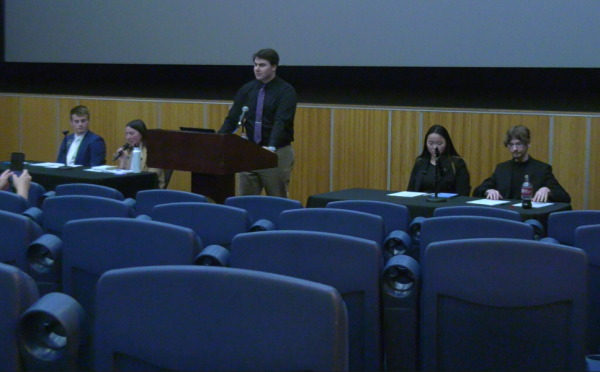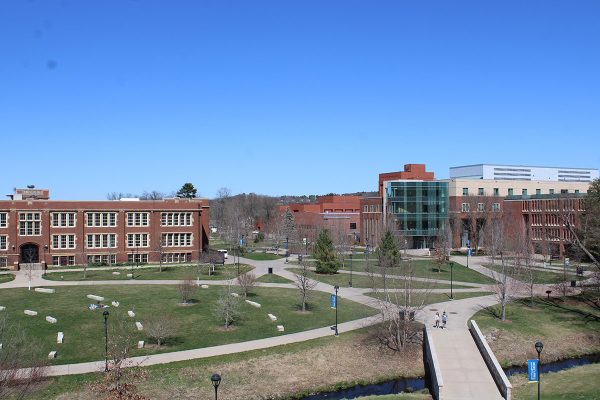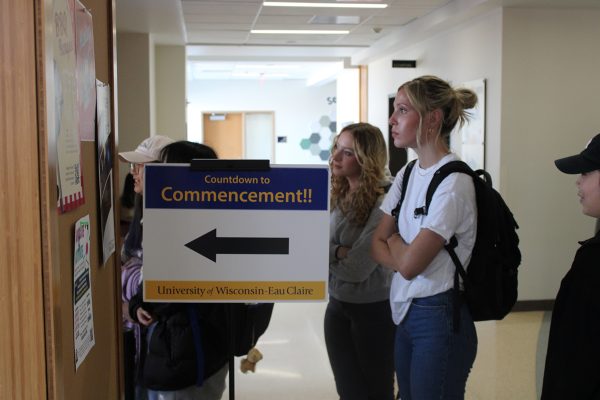Ahead of the competition
The annual Extreme Science and Engineering Discovery Environment Conference attracts the brainiest students and researchers from across the globe to San Diego to compete in science, education, software and technology related issues.
Travis Boettcher, a UW-Eau Claire senior was part of a team of five that won first place in the programming division July 22-25. The competition involved solving 10 computer science-related problems in eight hours.
“We had to make use of, as best as we could, the super-computing resources that we had at our disposal,” Boettcher said.
The problems at hand came from a series of computational problems called Project Euler, named after Swiss mathematician Leonhard Euler. To solve them, one must combine the use of mathematics to create an algorithm, and computer programming skills to network many XSEDE computers powerful enough to calculate these algorithms.
“Each millisecond is a massive computation for this system, and to get even like 100 milliseconds, it requires something like XSEDE to get done.”
Boettcher said having a mathematics major along with his computer science major benefited him greatly because the two have overlapping skills.
“The programming competition wasn’t finding bugs or anything like that,” he said.
Instead, one problem for example was a forest fire simulation. The team had to start a fire in the middle of the forest, and by using algorithms, figure out how much of the forest is destroyed in different situations, or find the percentage chance and rate of it spreading.
Boettcher did research last year with Eau Claire professor Peter Bui using a software program called HTCondor. After attending Condor Week at UW-Madison, Bui presented the research he did with Boettcher. The board was so receptive, he said, they invited Boettcher to attend a computer science summer program in Madison called Open Science Grid. Bui said Boettcher took advantage of the opportunity.
“I opened the door for him, but he walked through it,” Bui said.
During the program, Boettcher said he met his team that would later go to San Diego for the XSEDE 13 competition. After struggling with some of the practice problems at OSG, the team realized their skills would be quite novice going into the competition. He also said they planned to go into it with a “let’s just have fun” mentality.
“We did not at all expect to win,” Boettcher said.
The team was comprised of undergraduate students from across the world — Nebraska, Pennsylvania and Puerto Rico.
Cassandra Schaening, an undergraduate computer science student at University of Puerto Rico-Rio Piedras agreed with Boettcher. she said the team kept a positive attitude, but wouldn’t have been disappointed if they had lost.
She said winning XSEDE 13 opened up many opportunities for her.
“It affected (my future) more than I expected,” she said.
Schaening said winning the contest gained faculty members’ attention at her university and she was mentioned for research. She said she wants to do graduate work and hopes to attend UW-Madison.
Boettcher expects to graduate this May and already earned a full-time job doing tech support and building software with Marten Transport.
He said he doesn’t know if the XSEDE 13 experience helped him get the job, but he is thankful nevertheless.










